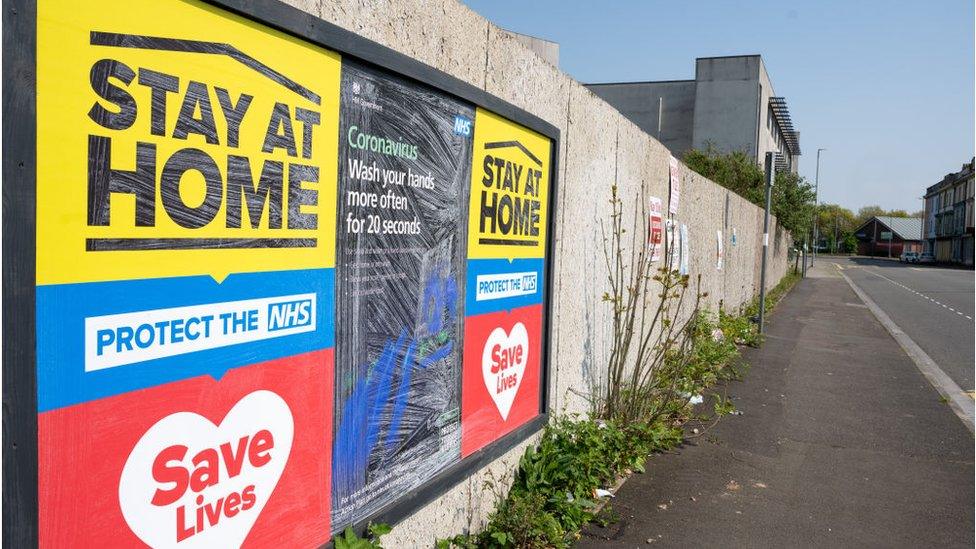Furlough: Pub manager's worry and confusion over pay
- Published
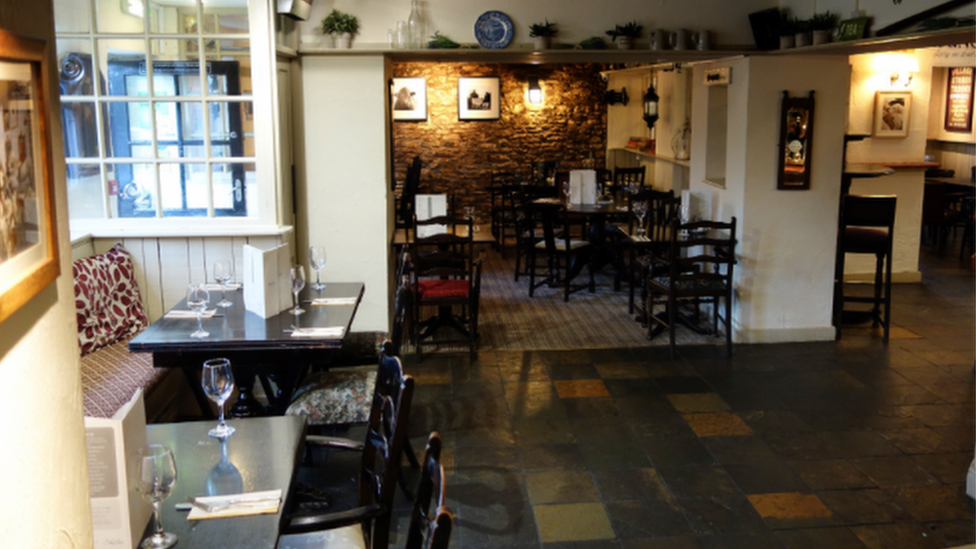
The Star Inn in Treos saw its capacity drop from 120 to 30 once social-distancing measures were put in place
For pub manager Kim Marsh, only being paid 80% of her normal salary meant taking a "big hit".
The Coronavirus Job Retention scheme, known as furlough, ends on Saturday, and will be replaced with the Job Support scheme.
Ms Marsh said that means taking a further reduction in her own pay, and a difficult job working out how to claim for the pub's staff.
Under the new scheme, Kim and her partner Paul Greaves, who is a chef, will get 67% pay if their employer is closed by restrictions.
If and when the pub is allowed to reopen it rises to 73% if they are able to work a fifth of their hours.
The more they are able to work the more they can take home overall.
The chancellor has said he aims to support as many jobs as possible, but not every one will be saved.
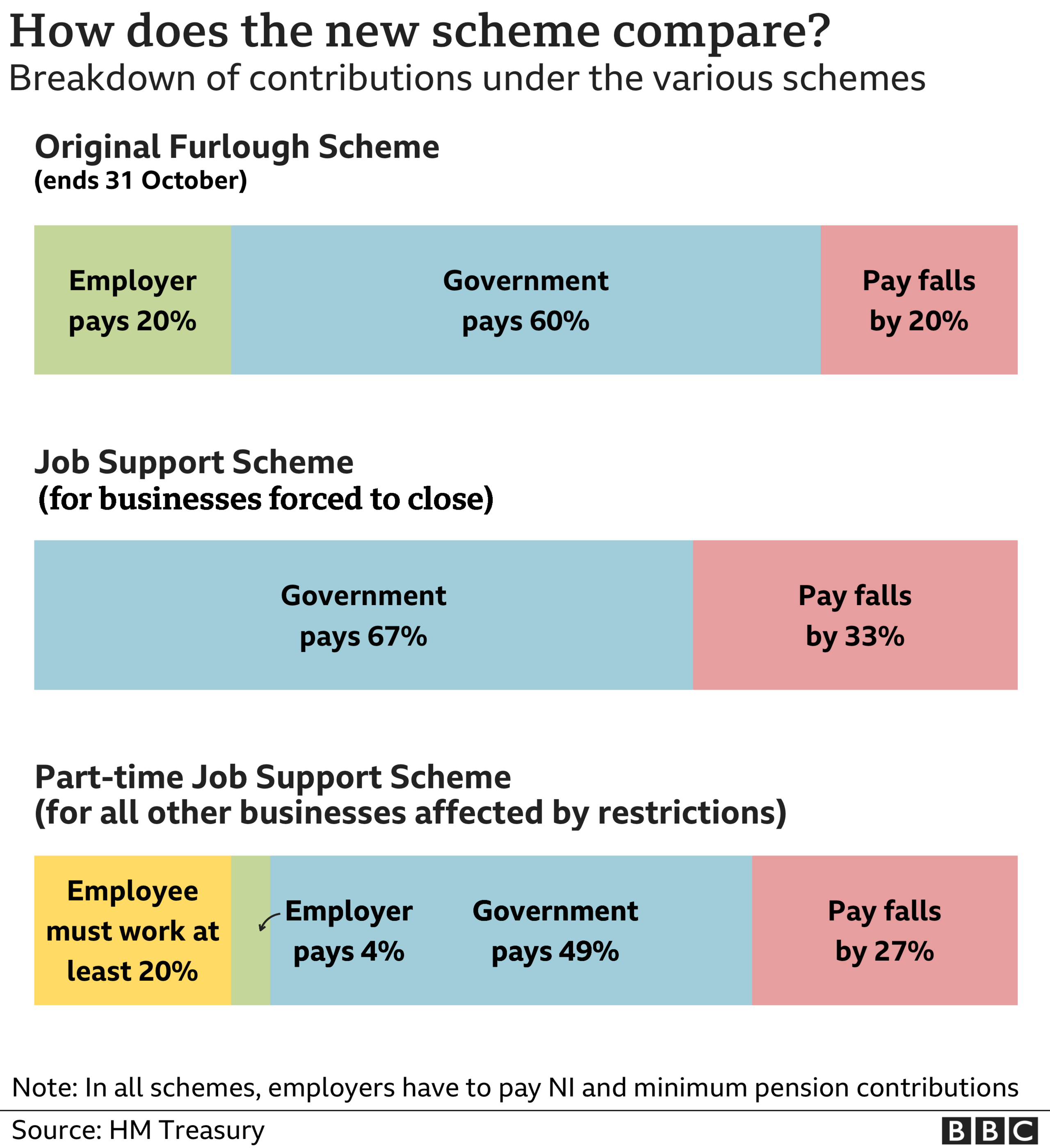

With four children, it has already been tough.
"We've got to find money for bills," she said. "We've got rent to pay.
"We went four and a half months on 80%. For it to drop again... We've used all our savings.
"No-one wants to build up a debt. Christmas is coming up, it's a really worrying and emotional time."

Both Kim and partner Paul were on 80% pay earlier this year and face a further reduction

When the couple checked in the summer they were not eligible for universal credit - although Ms Marsh is not sure whether that will change if their take home pay is reduced further.
As manager of the Star Inn in Treos, Vale of Glamorgan, close to the border with Bridgend, it is her job to organise the staff payroll - including working out furlough for the final week of October, and looking at getting in more support from the new scheme.
"Being the manager, it's my job to keep the rest of the staff updated with the new rules and schemes. It's so confusing, and the guidance hasn't come quick enough and in enough detail.

Kim Marsh is also worried about her team's well-being in the face of uncertainty
"I'm trying to keep the mental health and morale of the staff up, it's been hard for all of us, but we're a team," she said.
"We have been trying to give people hours in the takeaway side, but at the moment it's tricky because we're shut.
"How can I promise the staff there will be hours next month when we don't know?"
The restrictions placed on pubs have hit the business.
Before March the pub was able to seat 120 people. Once social-distancing measures were in place this was cut to 30.
Added to that are their concerns the Christmas period will not be as lucrative as normal to help make up for some of the summer shortfall.
"It's really tough," she said. "The whole of the hospitality industry is struggling."
HMRC has published information, external for businesses about how the scheme works.
But launching the replacement scheme in September, Chancellor Rishi Sunak said he could not save every job.
"The primary goal of our economic policy remains unchanged - to support people's jobs - but the way we achieve that must evolve," he said.
What did furlough do for Wales?
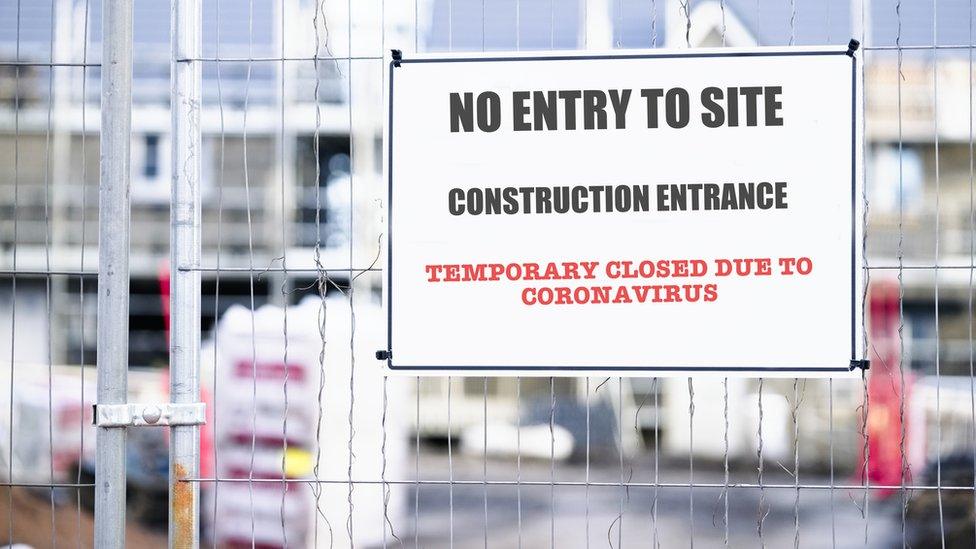
The Coronavirus Job Retention Scheme - furlough - was brought in on 20 March to "hibernate" jobs and help employers keep on staff during lockdown.
The scheme meant the Treasury paid 80% of an employee's wages while they were not working, up to a maximum of £2,500 per person per month.
The support provided has been reduced since the beginning of August, and comes to an end on Saturday.
Claims were at a very similar rate across the nations and regions of the UK:
The Treasury said the numbers of jobs furloughed in Wales reached a peak in July of 378,400 - roughly 29% of eligible jobs
The figures do not include the separate support for 108,000 self-employed people, or those who did not qualify for any support
From 1 July, employers could apply for flexible furlough, meaning an employee could be furloughed for part of their time employed
By the end of July, 210,000 in Wales were on some form of furlough
By 31 August, 86,600 were still fully furloughed, with 43,900 on partial furlough - more than 130,000 in total. That represented around 10% of eligible Welsh employees, according to the latest Treasury statistics
Roughly the same proportion of men and women were furloughed, but there was some variation across different Welsh counties
By 31 August, Conwy had highest take up rate, at 12% of jobs, and Neath Port Talbot the lowest at 8%.
- Published22 October 2020
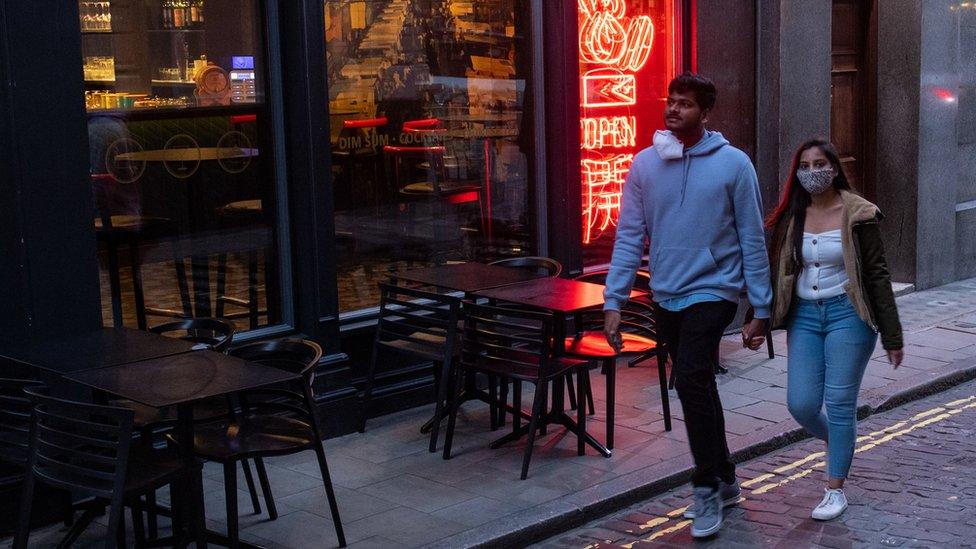
- Published28 October 2020
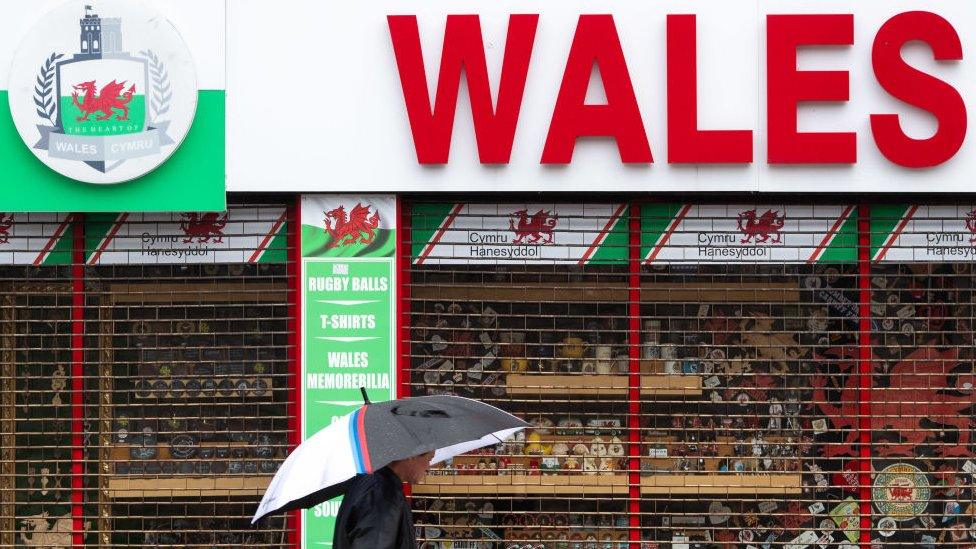
- Published20 October 2020
